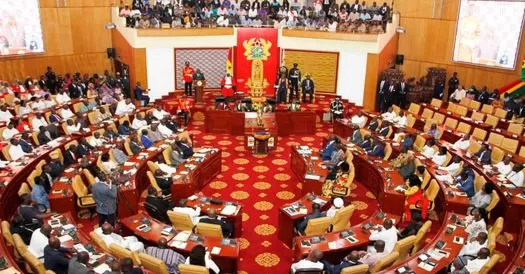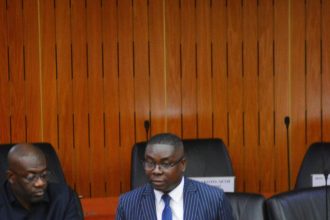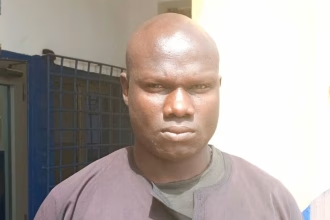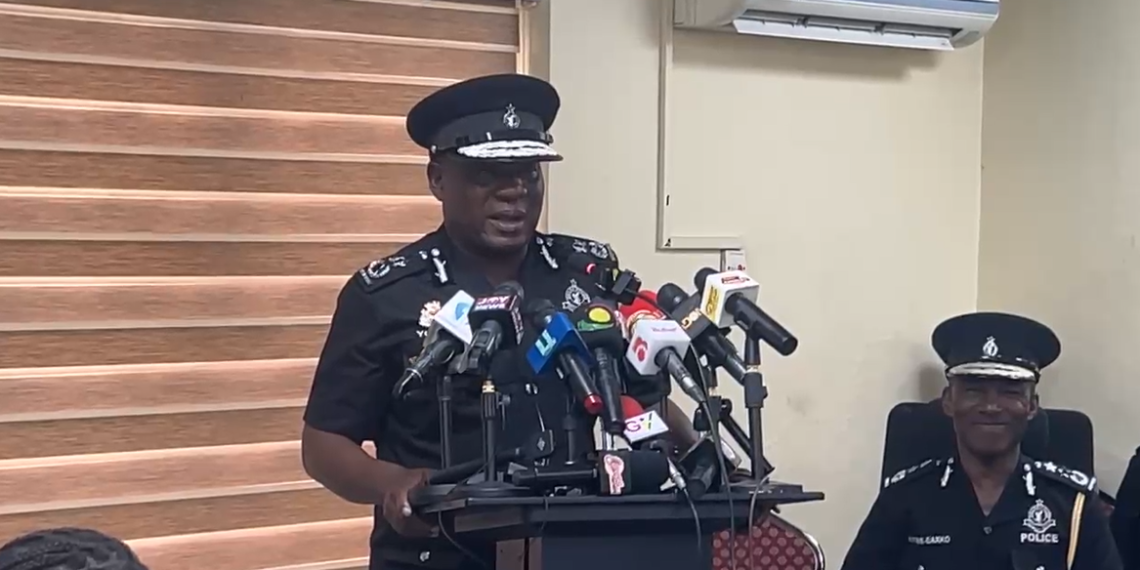The seven-member panel of the Supreme Court in its ruling on Tuesday said it cannot give the petitioner in the on-going election petition another opportunity to re-open his case.
It was the considered view of the court presided over by the Chief Justice that the petitioner cannot hide under the cloak of new evidence to fill the gaps and lapses in his case.
The Supreme Courts judges also pointed out that the petitioner, John Mahama has not even adduced any new and compelling evidence in its application and that “petitioner has advanced the same arguments”.
The Chief Justice Anin Yeboah in an extensive reference to a precedent — Poku versus Poku 2007 and 2008, Ghana Law Report, Supreme Court of Ghana case, read the unanimous ruling.
The case which was cited by Counsel for the second respondent (Akoto Ampaw), the apex court, per rule, expresses the principle in the following words:
“The rule is intended to assist an applicant who has made a general attempt to look for the evidence and has worked in favour to cause us to be ardent to unmasking attempt by an unsatisfied party coming through the back door and under the cloak of having to come by new or fresh evidence seeking to fill in gaps or lapses in his or her case.
“The rule is not meant to aid the slohtful or indolent, the reckless or negligent litigant whether acting same or through his counsel” the Chief Justice quoted.
He continued “the application is not granted on compassionate grounds neither is it meant to give the slovy, particularly a litigant, acting through counsel and who fails at the trial to marshall his facts carefully or fails to conduct his case properly by presenting essential evidence at the trial or through the necessary cross examination.
“And also fails to conduct the necessary investigation in which would have thrown light on or strengthen his case or give him or her a second chance at rebuilding his or her case,” Justice Anin Yeboah quoted.
According to the Chief Justice, the same point was captured in the case of Annabel versus Owusu 1982/83, Ghana Law Report 585.
The court’s decision to dismiss the case comes after the three parties had presented arguments on the petitioner’s re-opening application.
Counsel for the petitioner Tsatsu Tsikata said he was taken by surprise when the respondents (Electoral Commission and Nana Akufo-Addo) announced closure of their case.
Mr Tsikata said the petitioner’s team had been assured of the respondent’s witnesses mounting the witness box since it had stated earlier in its affidavit.
He wants the court to treat the EC Chairperson Jean Mensa as a hostile witness.
A hostile witness, also known as an adverse witness or an unfavourable witness is a witness whose testimony on direct examination is either openly antagonistic or appears to be contrary to the legal position of the party who called the witness.
Making a case for the re-opening of their case, Mr Tsikata said the petitioner closed his case because the EC Chairperson, in her affidavit, had assured the court that she will make herself available for cross examination.
That assurance, he pointed out led to the dismissal of the petitioner’s interrogatories application, which sought to ask the EC Chairperson 12 key questions it claimed were critical to the case.
“We had the expectation that the chairperson of the first respondent (Jean Mensa) will testify hence the closure of the case.
“The Chairperson of the first respondent has in affidavit made clear that the petitioner will in no way be prejudiced because the questions that the petitioner sought to have in interrogatories those will be subject matter in cross examination,” Mr Tsikata explained.
He further said the two respondents (Electoral Commission and Nana Akufo-Addo) should rather be eager to mount the witness box to clear its names in the ongoing petition.
READ MORE @: “Am I Not Allowed To Mention Jean Mensa’s Name?” – Tsikata Clashes With Supreme Court Judge.
The respondents’ opposed the motion
The Electoral Commission on the other hand has asked the apex court to dismiss the fresh application to reopen the case.
According to Counsel for the first respondent Justin Amenuvor the application is not warranted by any rule of law or procedure.
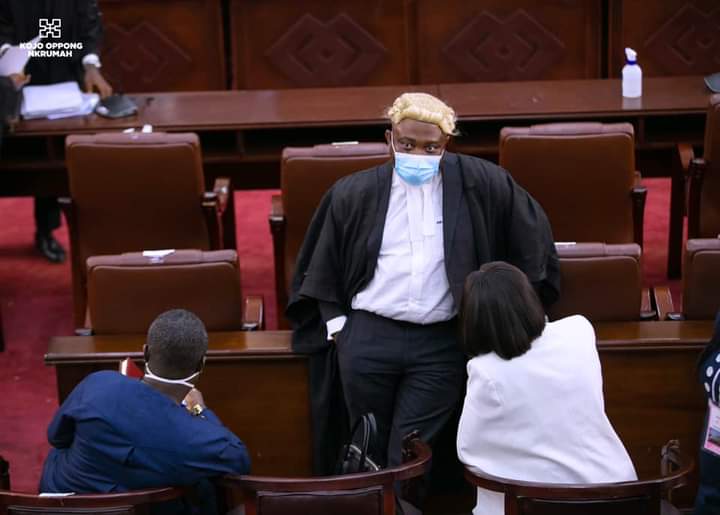
The EC Chairperson in her affidavit in opposition to the application, explained that at no point had she informed the petitioner nor his lawyers of her desire to testify in the case.
Opposing the motion, Mr Amenuvor insisted that the application is not in accordance with the rules of the court.
He said the court is acting with strict timelines to work within the 42 days.
Mr Amenuvor told the court that an extensive research he conducted so far on re-opening of cases, pointed that it was not feasible.
With reference to common law, Mr Amenuvor said as far back as 1876 “no such attempt has ever been made. This is an abuse of the court processes.”
Akoto Ampaw Responds
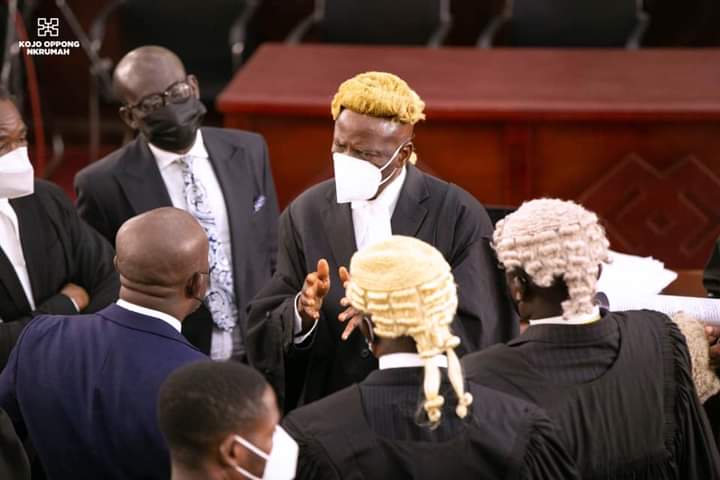
Mr Ampaw, Counsel for the Second Respondent questioned the petitioner’s decision to re-open his case when he had through all three witnesses submitted its evidence.
Once the petitioner’s team have closed their case, Mr Ampaw said the court should rule based on the evidence before it.
According to President Akufo-Addo’s counsel, the three witnesses who testified have not proven to the court that the votes were indeed padded.
For the petitioner to be allowed to re-open their case, Mr Ampaw said they must prove that the fresh evidence they wish to put before the court was not available to them at the time it had closed its case.
He also said the petitioner’s team should prove how material the fresh evidence will be to the case.
READ MORE @: Supreme Court Dismisses Mahama’s Application Asking Jean Mensa To Respond To 2020 Election Errors
Again, he said that lead counsel for the petitioner, Tsatsu Tsikata should have anticipated that the respondents could use the evasion of cross-examination strategy because that is permitted under the law.
“If you didn’t know about this strategy, then that is too bad for your client,” he noted.
According to him, the application of the petitioner to reopen his case was to present new evidence.
“This is an attempt to call for further evidence and he must be held to the rule on the condition to be met in order to adduce further evidence,” he said.
Meanwhile, the apex court has directed all parties to file their closing arguments on February 17, 2021.
READ ASLO:
We are not superhumans” – Tsatsu to Supreme Court
Roadmap for election petition hearing announced













